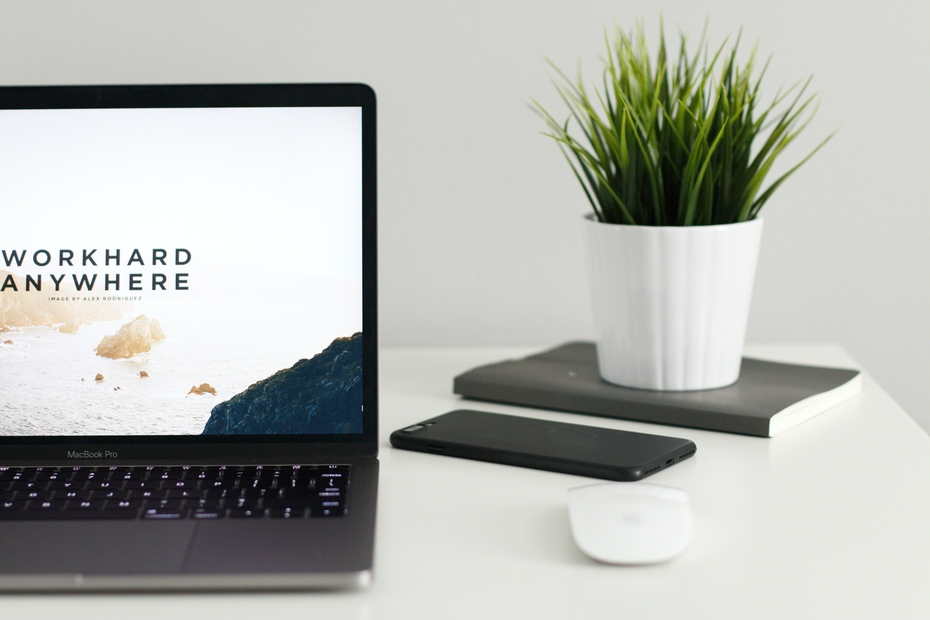
The optimal workplace strategy that's here to stay.
The hybrid work model has been a transpiring workplace strategy in the MENA region and most parts of the world with the onset of the COVID-19 pandemic in 2020. While most of the industries in various sectors have witnessed a positive business transformation, be it in profit or productivity, many factors need to be considered on whether it would be the perfect strategy for most industries in the service sectors, mainly retail.
Contributing Editor Athwifa Saleem shares her insights on how the hybrid work model can facilitate better work-life balance and how service sectors such as the retail industries can benefit immensely from implementing the same.
Since COVID, came a massive halt to what was collectively known as the “9-5 normal/conventional routine,” that followed the implementation of various work methods for better productivity, the triumphing one being The Hybrid Work Model; where the company allots preferable days when employees can come to the office or employees discuss their preferred schedules and work locations with managers.
Fast forward to the third quarter of 2021, with the UAE government’s effective strategy to provide COVID-19 vaccinations to most of its population, most companies have been reopening offices and are considering shifting back to conventional work methods. However, companies in the UAE are keen on practicing the hybrid working model even after the pandemic subsides, with many senior officials confirming that the hybrid work model is set to be the new norm in the region. This model gives optimal flexibility, while at the same time it provides the social component of meeting people in the office. As many professionals have worked from home over the last 17 months, companies have begun downsizing their physical space to further implement the hybrid model.
A new study by Boston Consulting Group (BCG) mentions that almost 86% of UAE employees preferred to work virtually or in hybrid environments post-Covid. “The vast majority of respondents have indicated their wishes for remote working to remain to some degree illustrates their high satisfaction with the newfound flexibility and efficiency,” said Christopher Daniel, managing director, and Partner, BCG Middle East.
Further according to a recent report done by PwC, the essential findings during the lockdown from implementing the hybrid work model showcases how the model can be effectively applied to accelerate progress towards reaching the goals of Digital Saudi 2030, whereby all KSA citizens are entitled to savor the opportunities of an increasingly digitalized society. These lessons are equally applicable to other GCC member countries which must adapt their workplaces to a world where social distancing measures are likely to remain in place for some time to come. Similarly in Qatar, with the commencement of the hybrid work model that stemmed from the pandemic, according to the recent reports conducted by Microsoft MENA, stats have proven that managers and employees expect to spend over a third (35 per cent) of the work week outside of the traditional office setting. At the same time, many simultaneously see value in attending the office to maintain bonds with colleagues as well, thereby proving that they look forward to the flexibility from their organizations that the hybrid work model provides. A prominent change around workplace strategy is already in the works, with a healthy majority (74 percent) of companies in Qatar having a remote work policy in place.
Aside from certain service sectors such as retail and healthcare, many key sectors such as finance, professional services, administration and back offices are currently operating under the hybrid work model, with the employees crediting flexible work hours to facilitating better work-life balance in their daily routine.
Not surprisingly, companies may try to push for a 100% return back to the office model in order to streamline work efforts and ensure maximum productivity and alignment amongst teams. However, as per our interview with the Founder of Cosmic Centaurs in Dubai, companies can implement protocols to ensure productivity from far away places.

Digitization doesn’t stop at the office. Long before the pandemic had set in, retail businesses have been facing the rigid obstacle of constant change in their consumers’ shopping tactics. As a result over the years, businesses have optimized their digital presence as the solution to their brick and mortar layout retail woes. The retail sector will also be implementing more hybrid-retail strategies as a means of consolidating their online and offline presence to deliver a seamless customer experience.
While a majority of retailers could be initially skeptical about their productivity in a hybrid work model, here are proven means by which the hybrid model can work for retailers who are determined to survive in the digital era:
Retailer’s tryst with creating an optimal sensorial shopping experience
Shopping has always been a multi-sensorial experience that goes much further than a mere transaction. It is about replacing the traditional shopping experience and putting the customer at the center of the whole retail process.
Retailer’s irreplaceable connection; the human element
That human connection is the brick & mortar store’s trump card and must be dealt with well. Maximizing the human element juxtaposed with online connectivity is the ultimate key to creating the ideal hybrid experience.
Retailer’s innovative ways to collaborate in the world of “New Normal”
The ever-changing retail scene is paving the way for deals between manufacturers, retailers and delivery companies to create ‘collaborations’ that allow them to combine their strengths and combat their weaknesses to co-create productive retail strategies.
About The Editor
Athwifa is a business graduate of Sikkim Manipal University and has been on the pursuit of enhancing her career as a content writer, in the past contributing to coveted publications in the region such as Harper’s Bazaar Arabia. Athwifa is passionate about culture, food, hospitality and wellness as well as scouting the latest trends.



